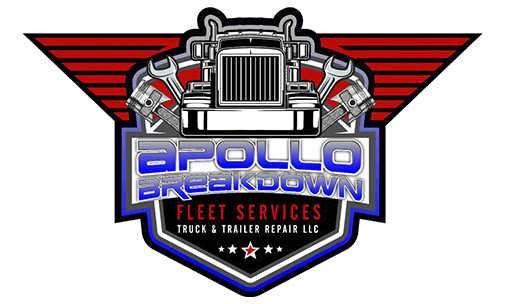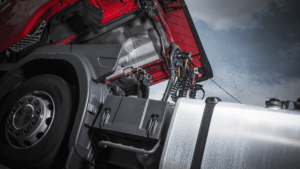Keeping your trucks and trailers in optimal condition is crucial for the seamless operation of your commercial fleet. Implementing a robust preventive maintenance plan can not only extend the lifespan of your vehicles but also prevent costly breakdowns and improve safety on the road. In this guide, we will delve into essential preventive maintenance tips, ranging from truck maintenance to trailer upkeep, tailored specifically for truck and trailer owners, fleet managers, and commercial vehicle operators. By prioritizing regular check-ups and proactive care, you can ensure your fleet remains reliable and efficient, minimizing downtime and maximizing productivity.
Benefits of Regular Truck Maintenance
Regular truck maintenance offers numerous benefits that can significantly impact your fleet’s performance and longevity.
Firstly, it enhances safety by ensuring that all vehicle components are in optimal working condition, reducing the risk of accidents caused by mechanical failures.
Secondly, it minimizes unexpected breakdowns, which can lead to costly downtime and disrupt your operations. Regular maintenance also helps in identifying and addressing minor issues before they escalate into major problems, saving you money on expensive repairs.
Finally, keeping your trucks in peak condition can extend their lifespan, providing a better return on investment and ensuring your fleet remains reliable for years to come. Prioritizing truck maintenance is a vital aspect of effective fleet management and commercial vehicle maintenance.
¿Looking for professional help? Our team is 100% trained to help you and solve any problem, visit our website now!
Key Reasons for Trailer Upkeep
Trailer upkeep is essential for maintaining the overall efficiency and safety of your commercial fleet. One key reason is that regular maintenance helps prevent trailer failures, which can lead to accidents, cargo damage, and costly repairs. Proper upkeep also ensures that brakes, tires, and lights are functioning correctly, enhancing road safety and compliance with legal standards.
Additionally, well-maintained trailers are less likely to experience downtime, which keeps your deliveries on schedule and your clients satisfied. Furthermore, regular inspections and maintenance can extend the lifespan of your trailers, providing a better return on investment.
By prioritizing trailer upkeep, you contribute to the reliability and productivity of your fleet, which is a cornerstone of effective fleet management and commercial vehicle maintenance.
We recommend you to see this article: Semi Truck Repair: Common Issues and Professional Solutions
Essential Maintenance Checks
To keep your trucks and trailers operating smoothly, certain maintenance checks should be performed regularly.
Start with engine and fluid checks, ensuring that oil, coolant, and transmission fluids are at optimal levels and free of contaminants.
Next, inspect the brakes for wear and tear, as well-functioning brakes are crucial for safety. Tire maintenance is also vital; check for proper inflation, tread wear, and any signs of damage. Lighting systems, including headlights, brake lights, and turn signals, should be tested to ensure they are functioning correctly.
Additionally, examine the suspension and steering systems for any signs of wear or damage. Finally, inspect the trailer components such as the coupling devices, frame, and cargo securement systems.
Do you want to restore the performance of your vehicle? We can help you, contact us now!
Common Issues and Solutions
Understanding common issues and their solutions is critical for effective truck and trailer maintenance. One frequent problem is brake wear, which can be addressed by regularly inspecting brake pads and discs and replacing them as needed. Another common issue is tire damage, often caused by under-inflation or overloading.
Regularly check tire pressure and ensure proper load distribution to prevent this. Engine overheating is another concern, which can be mitigated by maintaining proper coolant levels and ensuring the radiator is clean. Electrical issues, such as faulty lighting or dead batteries, can be resolved by routine checks of the electrical system and replacing worn-out components.
Additionally, trailer coupling issues can lead to unsafe conditions; regularly inspect and lubricate coupling devices to ensure secure connections. By proactively addressing these common issues, you can enhance the safety, reliability, and longevity of your fleet, which is essential for effective fleet management and commercial vehicle maintenance.
We recommend you to see this article: Trailer Hitch Repair: Ensuring Safe Towing on the Road
Creating a Maintenance Schedule
Establishing a maintenance schedule is essential for ensuring the consistent upkeep of your trucks and trailers. Start by identifying key maintenance tasks that need to be performed regularly, such as oil changes, brake inspections, tire rotations, and fluid level checks.
Next, determine the optimal frequency for each task based on manufacturer recommendations, vehicle usage, and operating conditions. For example, high-mileage vehicles may require more frequent maintenance checks. Utilize a calendar or fleet management software to organize and track these tasks, ensuring no maintenance activities are overlooked.
It’s also beneficial to keep detailed records of all maintenance performed, including dates, services conducted, and any parts replaced. This documentation can help identify recurring issues and facilitate proactive repairs.
By creating and adhering to a structured maintenance schedule, you can prevent unexpected breakdowns, enhance vehicle performance, and ensure the longevity of your fleet, which is crucial for effective fleet management and commercial vehicle maintenance.
Apollo saves you time and money to keep you moving, visit our website here.
Tools and Resources
Having the right tools and resources is crucial for effective preventive maintenance of trucks and trailers. Essential tools include a reliable set of wrenches, screwdrivers, pliers, and socket sets for basic mechanical tasks. Additionally, specialized tools like tire pressure gauges, brake bleeders, and diagnostic scanners are necessary for more specific maintenance activities. Investing in quality tools can save time and effort, ensuring that maintenance tasks are performed correctly.
Furthermore, leveraging resources such as fleet management software can significantly enhance maintenance efficiency. These platforms offer features like maintenance scheduling, parts inventory tracking, and repair history documentation, streamlining the entire process. Access to up-to-date service manuals and manufacturer guidelines is also invaluable for adhering to recommended maintenance practices.
Call us for truck repair road service here. We are in Florida, Texas and Georgia. Open 24/7.






